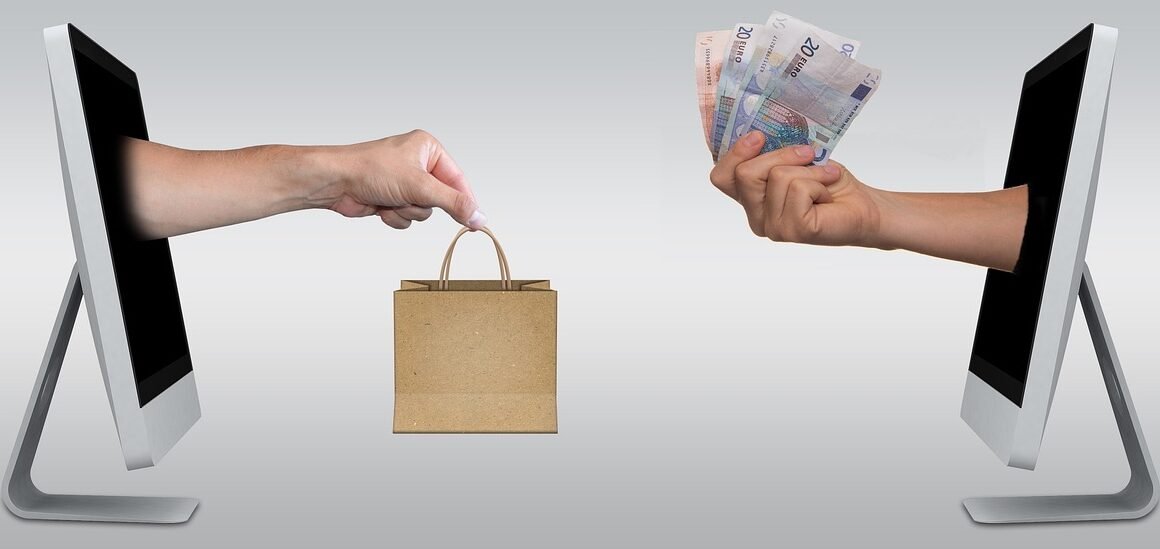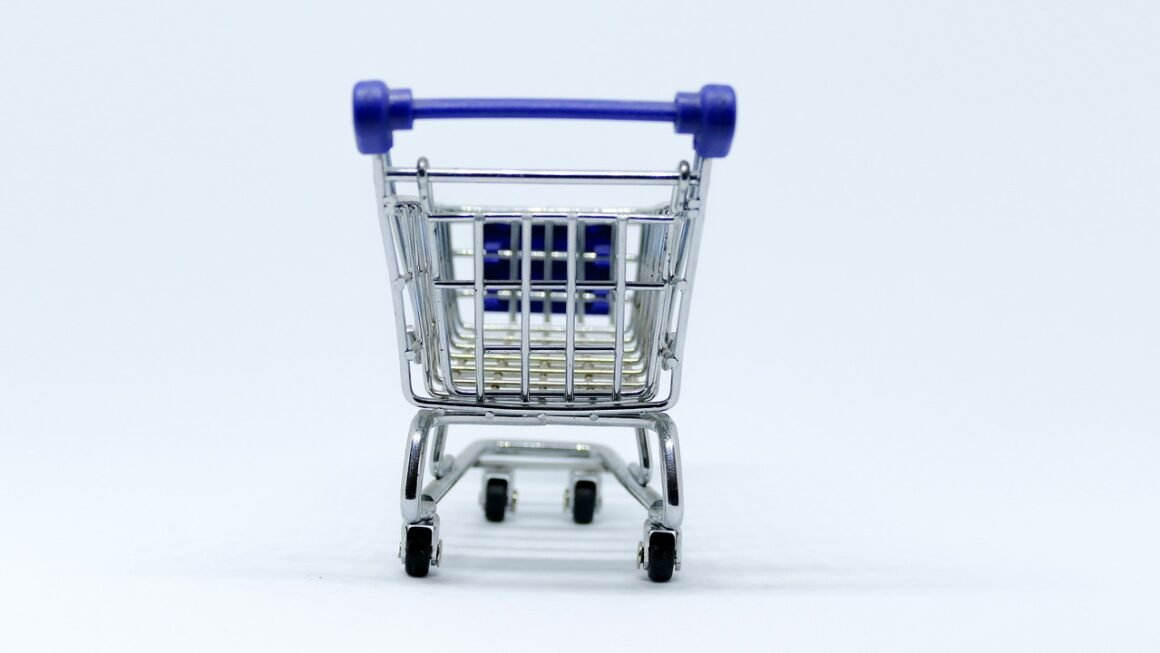Imagine leaving your house armed only with your smartphone. No bulky wallet, no fumbling for cash – just a simple tap and you’re ready to pay for groceries, coffee, or even split the bill with friends. This is the power of digital wallets, a technology transforming how we manage and spend our money. This blog post will delve into the world of digital wallets, exploring their functionality, security, and the benefits they offer in today’s increasingly digital world.
Understanding Digital Wallets
What is a Digital Wallet?
A digital wallet, also known as an e-wallet, is a software-based system that securely stores payment information, such as credit card details, debit card information, loyalty cards, and even digital currencies. It allows users to make electronic transactions in stores, online, and even peer-to-peer, eliminating the need to carry physical cards or cash. Instead of physically swiping your credit card, you simply use your smartphone, smartwatch, or other compatible device to make a payment.
- Digital wallets use encryption and tokenization to protect your financial data.
- They can be accessed via mobile apps, web browsers, or dedicated devices.
How Digital Wallets Work
Digital wallets function by linking your payment methods to a secure platform. When you make a purchase, the wallet transmits a token, which is a unique, randomly generated code, to the merchant instead of your actual credit card number. This significantly reduces the risk of your financial information being compromised in the event of a data breach.
- Near Field Communication (NFC): Many digital wallets use NFC technology for contactless payments at point-of-sale (POS) terminals. You simply hold your device near the terminal to initiate the transaction.
- QR Codes: Some wallets utilize QR codes, which are scanned by the merchant’s device to process payments.
- In-App Purchases: Digital wallets are also used for seamless in-app purchases, eliminating the need to repeatedly enter your payment information.
Benefits of Using Digital Wallets
Convenience and Speed
The primary benefit of digital wallets is their convenience. Imagine quickly paying for your morning coffee with a simple tap of your phone.
- Faster transactions: No more fumbling for cash or cards.
- Simplified online shopping: Autofill payment information for faster checkout.
- Consolidated information: Store all your cards and loyalty programs in one place.
Enhanced Security
Digital wallets offer enhanced security compared to traditional payment methods.
- Tokenization: Replaces your sensitive data with a secure token.
- Biometric authentication: Use fingerprint or facial recognition for added security.
- Fraud monitoring: Many wallets offer fraud alerts and protection.
Streamlined Rewards and Loyalty Programs
Digital wallets can seamlessly integrate with loyalty programs, making it easier to earn and redeem rewards.
- Automatic rewards tracking: Automatically earn points for every purchase.
- Easy access to coupons and discounts: Store and redeem coupons directly from your wallet.
- Personalized offers: Receive tailored offers based on your spending habits.
Practical Examples:
- Apple Pay: A popular digital wallet integrated into Apple devices, known for its seamless user experience and strong security features.
- Google Pay: Widely used on Android devices, offering contactless payments and integration with Google services.
- Samsung Pay: Compatible with Samsung devices, offering both NFC and Magnetic Secure Transmission (MST) technology for broader compatibility with older payment terminals.
- PayPal: A widely used online payment platform that also offers a digital wallet for online and in-store purchases.
Security Measures and Best Practices
Understanding Security Protocols
Digital wallets employ several security measures to protect your financial information.
- Encryption: Your data is encrypted both in transit and at rest.
- Tokenization: As previously mentioned, tokenization replaces your actual card details with a unique token.
- Two-Factor Authentication (2FA): Adds an extra layer of security by requiring a second form of verification, such as a code sent to your phone.
- Biometric Authentication: Uses your fingerprint or facial recognition to verify your identity.
Best Practices for Secure Usage
While digital wallets are generally secure, it’s crucial to follow best practices to minimize risks.
- Keep your device secure: Use a strong password or PIN and enable biometric authentication.
- Be wary of phishing scams: Never click on suspicious links or provide personal information in response to unsolicited emails or messages.
- Monitor your account activity: Regularly check your transaction history for any unauthorized charges.
- Keep your software up-to-date: Install the latest security updates for your device and digital wallet app.
- Report lost or stolen devices immediately: Contact your bank or card issuer to deactivate your cards associated with the wallet.
Choosing the Right Digital Wallet
Compatibility and Features
Selecting the right digital wallet depends on your individual needs and preferences.
- Device Compatibility: Ensure the wallet is compatible with your smartphone or other devices.
- Payment Options: Check if the wallet supports your preferred credit cards, debit cards, and bank accounts.
- Merchant Acceptance: Verify that the wallet is accepted at the stores and online retailers you frequent.
- Security Features: Prioritize wallets with strong security features, such as tokenization, biometric authentication, and 2FA.
- Rewards and Loyalty Programs: Consider wallets that integrate with your favorite rewards programs.
Popular Digital Wallet Options
Here’s a quick comparison of some popular options:
| Digital Wallet | Device Compatibility | Key Features | Security Features |
|—————-|———————–|—————————————————|————————————————————|
| Apple Pay | iOS devices | Easy to use, integrated with Apple ecosystem | Tokenization, Face ID/Touch ID |
| Google Pay | Android devices | Wide merchant acceptance, integrated with Google services | Tokenization, fingerprint authentication |
| Samsung Pay | Samsung devices | MST and NFC technology, rewards program | Tokenization, fingerprint authentication, Samsung Knox security |
| PayPal | Multiple platforms | Widely accepted online, peer-to-peer payments | Encryption, fraud monitoring, purchase protection |
Conclusion
Digital wallets are revolutionizing the way we manage and spend our money, offering convenience, security, and a streamlined user experience. By understanding the benefits, security measures, and available options, you can confidently embrace this technology and enjoy a more efficient and secure payment experience. Remember to prioritize security best practices and choose a digital wallet that aligns with your individual needs and preferences. The future of payments is here, and it’s in your pocket, ready to be tapped.



